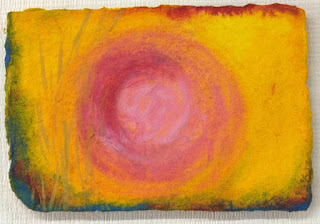Teshuvah Chapter 2.1
I wanted to study a little bit of Sefer Madda, Teshuvah specifically, between
Rosh Hashana and Yom Kippur. My quick thoughts are just that. Without thinking
too hard, I am reading the text, giving an initial impression, and then at some
point hope to circle back around by discussing with others, reading commentary,
and figuring it out at a deeper level. This surface summary is just a way for me
to record initial thoughts and look back later after more serious study.
Starting after Yom Kippur, I will be studying Rabbi Nachman of Breslov, and will more thoroughly delve into what I learn and my reflections.
Starting after Yom Kippur, I will be studying Rabbi Nachman of Breslov, and will more thoroughly delve into what I learn and my reflections.
Sefer Madda, Teshuvah, Chapter 2.1
The full text is listed below at the end of this blog post.SUMMARY:
Complete repentance is achieved when one has the opportunity to repeat a sin and refrains from doing so. Where one refrains in old age, where ones physical desire is diminished, this is an advantageous but not a complete repentance. One who repents before dying will be forgiven for their sins.
QUICK THOUGHTS: It is interesting that it starts with who has reached "complete Teshuvah." Why not start with a definition and work up to what the concept of what "complete Teshuvah" is?
Regardless, to me, a person of high loyalty, and high expectations for myself, I find it comforting to have complete Teshuvah defined so clearly. The opportunity to repeat a sin, and refraining from doing so. Only then will complete Teshuvah be achieved. I often am sorry for actions and reactions I have, but find myself repeating those patterns over and over again. It makes me wonder if complete Teshuvah is possible at the micro-level of day-to-day living. With regard to the bigger "misses," it seems complete Teshuvah would be slightly easier to not repeat. I cannot even think of a biggie for myself, so I could be wrong. Most of my transgressions are person-to-person, on a day-to-day basis of living and interacting with others.
I don't care for the idea of being forgiven of all sins before death with a deathbed request, mainly because why do the work now if later you can just say, "Eh! I'm sorry!" and all is well? That may be simplistic thinking or reading on my part (but these are my Quick Thoughts). On the other hand, when I am old, and dying, I may find those words comforting. Still, I struggle with the concept as I apply it to myself. Loopholes are never good for me. I need a strong fence.
1
[Who has reached] complete Teshuvah? A person who confronts the same situation in which he sinned when he has the potential to commit [the sin again], and, nevertheless, abstains and does not commit it because of his Teshuvah alone and not because of fear or a lack of strength.
For example, a person engaged in illicit sexual relations with a woman. Afterwards, they met in privacy, in the same country, while his love for her and physical power still persisted, and nevertheless, he abstained and did not transgress. This is a complete Baal-Teshuvah. This was implied by King Solomon in his statement [Ecclesiastes 12:1] "Remember your Creator in the days of your youth, [before the bad days come and the years draw near when you will say: `I have no desire for them.'"]
If he does not repent until his old age, at a time when he is incapable of doing what he did before, even though this is not a high level of repentance, he is a Baal-Teshuvah.
Even if he transgressed throughout his entire life and repented on the day of his death and died in repentance, all his sins are forgiven as [Ecclesiastes, op. cit.:2] continues: "Before the sun, the light, the moon, or the stars are darkened and the clouds return after the rain..." - This refers to the day of death. Thus, we can infer that if one remembers his Creator and repents before he dies, he is forgiven.
אי זו היא תשובה גמורה זה שבא לידו דבר שעבר בו ואפשר בידו לעשותו ופירש ולא עשה מפני התשובה לא מיראה ולא מכשלון כח כיצד הרי שבא על אשה בעבירה ולאחר זמן נתייחד עמה והוא עומד באהבתו בה ובכח גופו ובמדינה שעבר בה ופירש ולא עבר זהו בעל תשובה גמורה הוא ששלמה אמר וזכור את בוראיך בימי בחורותיך ואם לא שב אלא בימי זקנותו ובעת שאי אפשר לו לעשות מה שהיה עושה אף על פי שאינה תשובה מעולה מועלת היא לו ובעל תשובה הוא אפילו עבר כל ימיו ועשה תשובה ביום מיתתו ומת בתשובתו כל עונותיו נמחלין שנאמר עד אשר לא תחשך השמש והאור והירח והכוכבים ושבו העבים אחר הגשם שהוא יום המיתה מכלל שאם זכר בוראו ושב קודם שימות נסלח לו:
[Full Text copied from Chabad's website: https://www.chabad.org/library/article_cdo/aid/911891/jewish/Teshuvah-Chapter-Two.htm#v1]
[Summary provided in part by TheLivingTree.org]

Comments